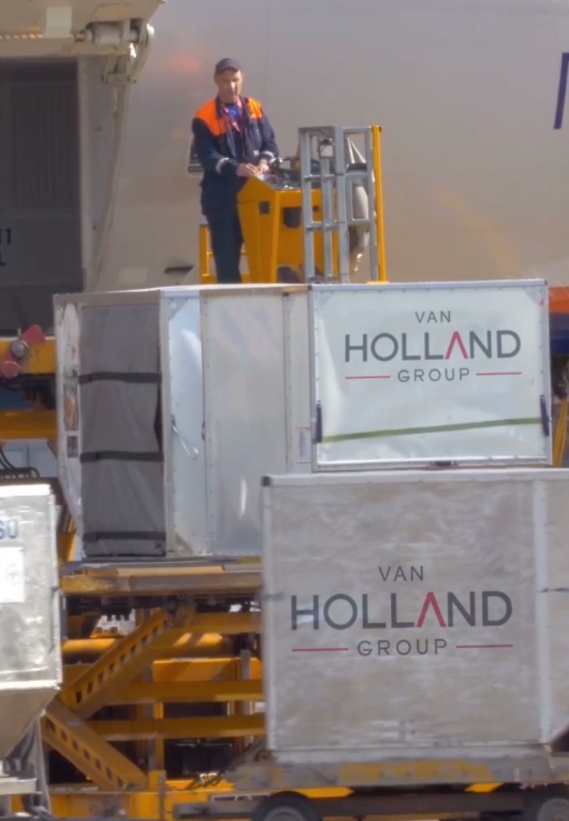
For e-commerce companies looking to sell their products in the United States, the American market offers tremendous growth opportunities. However, setting up efficient logistics is crucial for success.
This includes reliable shipping options, storage facilities, and fulfillment services that ensure smooth delivery to U.S. customers. While Fulfillment by Amazon (FBA) and Fulfillment by Merchant (FBM) are well-known, there are nuanced strategies and lesser-known approaches that savvy sellers can leverage. By investing in these solutions, Dutch companies can strengthen their competitive edge and expand successfully into the American market.
If you have any questions after reading this page, need specific advice for your business structure, or simply want to discuss the best options for your American dream, easily schedule a complimentary consultation with one of our experts using the button below!
Online sellers in the United States have a variety of logistics solutions to choose from. First, national carriers like USPS, UPS, and FedEx offer reliable delivery and comprehensive services. Additionally, Amazon FBA provides a complete fulfillment service, handling warehousing, shipping, and customer service.
For quicker, regional deliveries, local courier services can be utilized. There are also specialized fulfillment centers like ShipBob and Red Stag Fulfillment that manage storage, packaging, and shipping for e-commerce businesses. On this page, we delve into some unconventional examples and informative insights about selling online in the U.S.
Would you prefer to speak directly with one of our experts to explore the best options for expanding your business or product in the United States? Schedule a complimentary consultation!

Click here to learn more

Click here to learn more
Fulfillment by Amazon (FBA) involves sellers sending their products to Amazon's warehouses, where Amazon handles storage, packaging, shipping, and customer service, including returns. Sellers benefit from Amazon's fast shipping network and Prime perks.
Fulfillment by Merchant (FBM) means sellers are responsible for storing, packaging, and shipping their products, as well as customer service. This gives sellers more control over the process but lacks Amazon's logistical advantages.
Many sellers are discovering the benefits of combining FBA and FBM strategies:
Seasonal Flexibility: Some businesses use FBA during peak seasons, such as the holidays, and switch to FBM during slower periods. This approach helps manage inventory costs and avoid Amazon’s long-term storage fees.
Product-Specific Fulfillment: Sellers often use FBA for fast-moving, lightweight items and FBM for bulkier or slower-moving products. For example, a household goods seller might use FBA for small decor items and FBM for larger furniture pieces.
This hybrid approach allows sellers to optimize their fulfillment strategy according to their specific needs, enhancing efficiency and cost-effectiveness.

Beyond traditional warehouses, creative solutions are emerging:
Micro-Fulfillment Centers: Some sellers partner with local businesses to set up small-scale fulfillment centers. For instance, a boutique clothing brand might collaborate with a network of dry cleaners to store and ship inventory, enabling faster local deliveries.
On-Demand Warehousing: Platforms like Flexe and Ware2Go offer on-demand warehousing, allowing sellers to scale their storage space up or down based on demand. This flexibility is particularly valuable for companies with seasonal fluctuations or those testing new markets.
Choosing Between Amazon or 3PL?
When deciding between using Amazon's fulfillment services or a third-party logistics provider (3PL), consider your specific business needs, product types, and customer service goals to determine the best fit for your operations.


FBM sellers are increasingly utilizing technology to compete with the efficiency of FBA:
AI-Driven Inventory Management: Advanced AI systems can predict demand patterns, helping to optimize inventory levels across multiple locations.
Automated Packaging Solutions: Some FBM sellers invest in automated packaging machines that create custom-sized boxes for products, reducing shipping costs and improving sustainability.
These technological advancements enable FBM sellers to enhance their operational efficiency and provide a competitive edge in the marketplace.

Click here to learn more

Click here to learn more
Specialized fulfillment services cater to unique product categories:
Temperature-Controlled Fulfillment: For sellers of perishable goods or temperature-sensitive products, services like IceCOM offer specialized cold chain logistics.
Handling Hazardous Materials: Companies like Shipwire provide fulfillment services for products classified as hazardous materials, which are often excluded from standard FBA offerings.
These specialized services ensure that sellers can meet the specific logistical needs of their unique product categories effectively and safely.


As U.S. sellers expand globally, new shipping approaches are emerging:
Distributed Inventory Models: Some sellers utilize a network of international fulfillment centers to position inventory closer to global customers, reducing shipping times and costs.
FBA Export Programs: With Amazon's FBA Export, sellers can reach international customers without setting up separate fulfillment operations in each country.
These strategies enable sellers to efficiently manage their global supply chain while enhancing customer satisfaction through faster and more cost-effective deliveries.
Eco-conscious shipping is gaining momentum:
Reusable Packaging Systems: Companies like RePack offer reusable packaging solutions, enabling sellers to reduce waste and appeal to environmentally conscious consumers.
Carbon-Neutral Shipping: Some shipping providers now offer carbon-neutral shipping options, offsetting the environmental impact of deliveries.
These sustainability initiatives help businesses minimize their ecological footprint while meeting the growing demand for eco-friendly practices from customers.


While these innovative approaches offer benefits, they also come with challenges:
Complexity of Inventory Management: Hybrid models and distributed shipping require advanced inventory management systems to prevent shortages and overstock situations.
Quality Control: Using multiple shipping methods can make maintaining consistent quality control more challenging.
Cost Management: While flexible shipping options can optimize costs, they also demand careful financial oversight to ensure profitability.
Balancing these factors is critical for businesses to successfully implement and sustain innovative fulfillment strategies.
With our expertise and experience in supply chain management and warehouse operations, we can provide you with the tools and strategies to optimize your business operations. Our goal is to help your business grow through efficient and effective supply chain and warehouse management. So what are you waiting for? Contact us now to discover how Van Holland Group INC can assist you.
Choose success, choose Van Holland Group.
Biz Dev is not sales: Where do you identify opportunities and tow to approach them?
If you are ready to make positive changes.
It's not entirely comparable, but an INC is somewhat similar to an European entity.
We are more than happy to provide a customized quote for your business.
The Van Holland Group supports you with strategic planning, clear goals, and milestones for entering the U.S. market. Discover our straightforward approach. All prices are transparent and listed online. As an entrepreneur, you want to know exactly what to expect from the start
